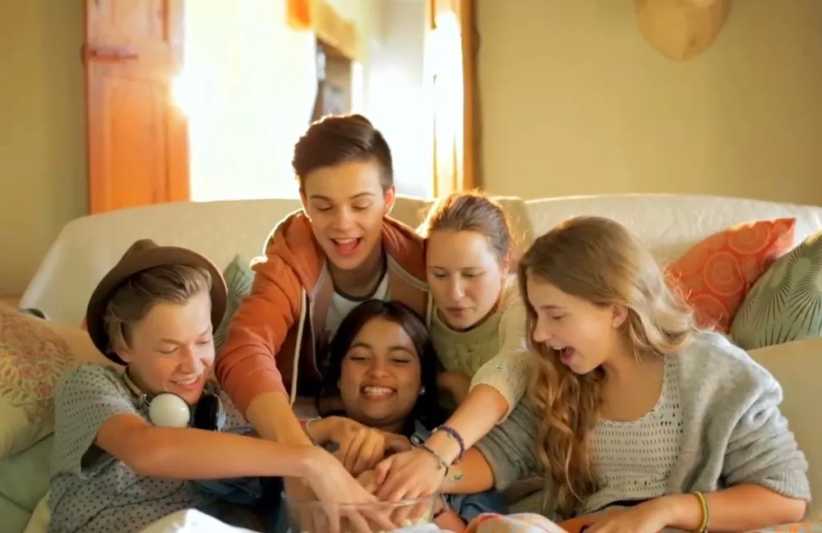The interview process plays a big part in an adult’s life. Being able to shine during an interview may determine whether or not you land a job. Performing well can open up doors to opportunities. Needless to say, being interviewed by a stranger who can determine one’s fate is daunting and extremely nerve-wracking. What if you say something wrong? What if your interviewer is unimpressed and shows it?
These days, it is not unusual for teenagers to also face the same unnerving and grueling process. Interviews pop up frequently in a teen’s life. Many colleges and universities require an interview. Employers of summer jobs and internships often like to drill their applicants with a few questions to get to know them a bit better. Some scholarships and special programs include interviews. Even applying for a leadership role in high school may require answering a few questions in person.
In my own life, I have been interviewed many times, for a variety of reasons, and in several different settings. I have also interviewed other students for leadership roles in school organizations. Acing an interview is not as difficult as it may seem. With the right preparation, a bit of confidence, and some practice, anyone can have a good interview.
Before the interview
An interview is just like any special event. In order to get ready for it, you will need to set aside some time to prepare. The day before your interview, be sure you are aware of the purpose of the interview. A college interview will not be entirely the same as an interview for a leadership position at school.
I like to find out as much as I can about the setup of the interview. Knowing what to expect definitely eases my anxiety. Yet, it is also important to be open to the unexpected. Once, for a scholarship interview, I was under the impression that I would be speaking with a “small” panel of the scholarship sponsors. So, “small” means two or three people, right? Nope! I walked into a room with 15 pairs of eyes staring at me. I had a quick moment of panic before I calmed down and adapted to the changed situation.
It is also a good idea to review your application. I reread my application not only to remind myself of what I have written, but also to see if I have any questions for my interviewer. (Big tip, almost every interviewer will ask you whether you have any questions for him or her.)
Plan ahead. I look up directions to my interview location. I even find pictures of the building on the internet or a map of the neighborhood. Sometimes, I even look up my interviewers, so I can effectively connect with them during the meeting.
During the interview
On the day of your interview, you will probably feel excited and a little apprehensive. Arrive on time. First impressions are always important. I can never be too careful about leaving myself enough time to get to my interview location. I’ve learned the hard way — on the way to my very first interview, I was met with a sick passenger on my train, which resulted in me sprinting down the sidewalk. Thank goodness I didn’t wear high heels!
During the actual interview, relax and enjoy the experience. A good interviewer will try to make his interviewee feel comfortable. When interviewing students for school leadership positions, I noticed that candidates are more open and outgoing when I first lighten the mood with some small talk.
After settling down, focus on answering the questions. Have confidence and really sell yourself. Now is not the time to feel modest! As a humble person at heart, I often found this the most difficult. I’m not one to flaunt my resume. Yet, during an interview, I’ve learned to open up about my achievements and share with interviewer my passions and interests.
Know that your interviewer is interested in you, so don’t be afraid to give too much. At the same time, be genuine. He wants to meet the real you.
Before you leave, be sure to ask your interviewer a few questions. This not only shows your interest, but also helps you learn more about the position you are seeking.
After the interview
When I get home, I immediately write a thank you note (well, e-mail) to my interviewer. My parents have always stressed the importance of thanking others for their time and consideration. It is not only courteous, but it also keeps you fresh in your interviewer’s mind. In my notes, I usually throw in a sentence or two about a specific conversation topic or moment during the interview. Something like “I enjoyed talking about life on campus,” or, “It was helpful to hear about your experiences, since you went to the same high school as me,” will help your interviewer remember you more vividly.
Also, I discuss my interview with friends and family. Sometimes I reflect on what I did right and what I could’ve done better. The interview process requires a lot of practice and sometimes, mistakes do happen. I have said some dumb things during a couple of interviews. Nevertheless, I have learned from my errors (and embarrassment).
It is also important to understand that the interview process is not the be-all and end-all of your application process. If you do not land the job, the college of your dreams, the leadership position, the scholarship, etc., that does not mean you performed poorly on your interview. You may just not be a good fit for what you were seeking. As long as you show who you truly are in an interview, you will succeed either way.
Aglaia Ho is a 17-year-old student from Queens who enjoys writing. Her work has been published in Creative Kids, Skipping Stones, Daily News-Children’s Pressline, and the State of the Wild.













